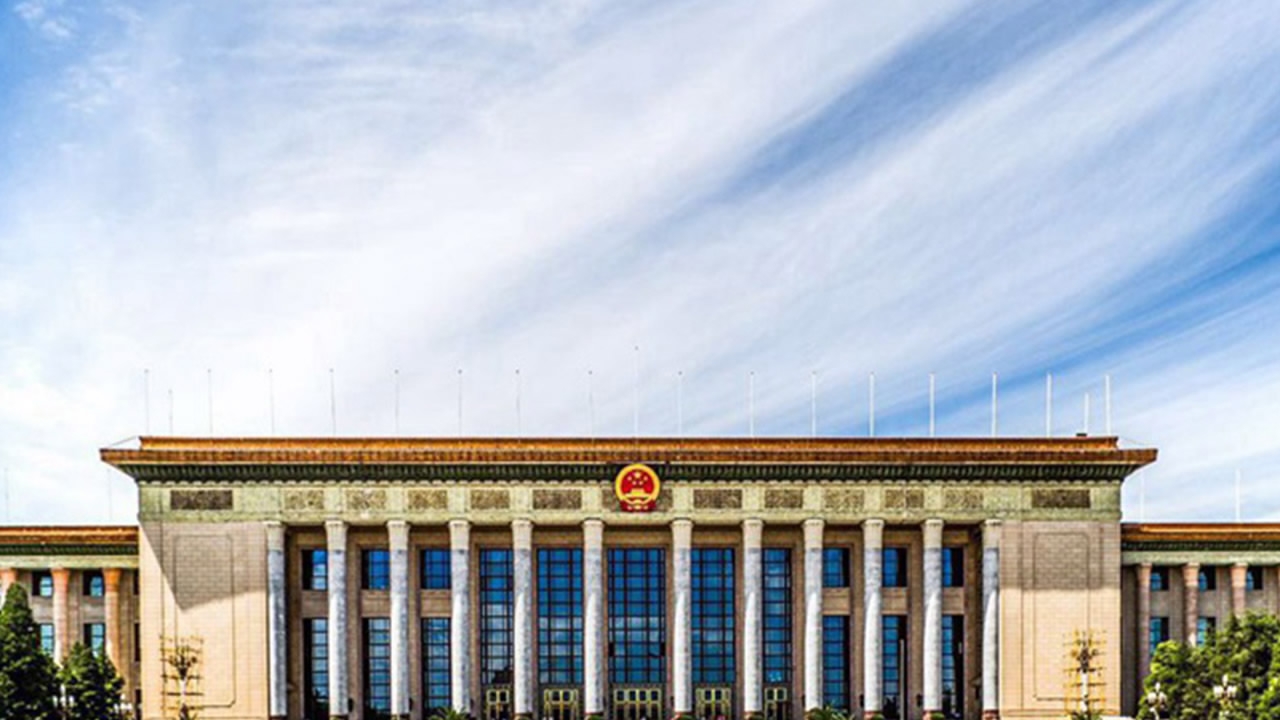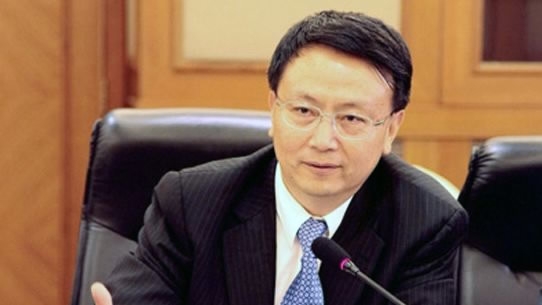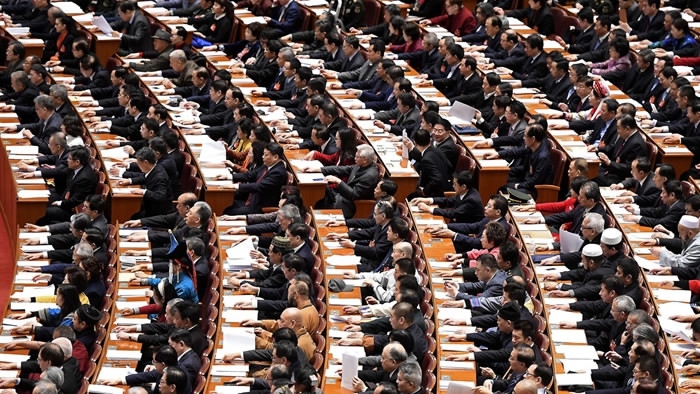
Politics
17:20, 17-Sep-2017
China Footprint: Chinese politics through the eyes of a Westerner
By Jeff Moody

Chinese politics can seem confusing, complicated and mysterious from the outside looking in.
When people first come to China, they might be fascinated at the thought of living under a different system – a system that's altogether less showy, less entertaining and to some observers less democratic from what they're used to in the West.
Time then, for me to try and shine a light on the Chinese system of government, and see how it compares to its blustery, blousy cousins in the West.
Chinese-style democracy
The CPPCC – or the Chinese People's Political Consultative Conference – is similar to the US Senate, but without the legislative power.
It's a place for political consultation. It is made up of representatives from the ruling party, the eight non-communist political parties and also some other organizations like trade unions, women's groups, youth groups and religious groups.

Jia Qingguo, member of the CPPCC and dean of the School of International Studies at Peking University. /VCG Photo
Jia Qingguo, member of the CPPCC and dean of the School of International Studies at Peking University. /VCG Photo
"They are not opposing the ruling party," said Jia Qingguo, dean of the School of International Studies at Peking University. "They criticize and also make constructive suggestions to help the ruling party do a better job."
Jia, a member of the CPPCC, says China is more democratized than people in the West probably realize.
The CPPCC is like the House of Lords in the UK - advising, explaining and bringing skills to the table that other organizations don't have. And it is democratic, Chinese-style.
Sedate, vocal and critical
With so many closed-door meetings of the CPPCC, the National People's Congress (NPC), the State Council and the all-encompassing Communist Party of China (CPC), it's no wonder that many Western observers find it hard to relate to this interlocking system of acronyms.
From the outside, these organizations appear sedate, but Jia said they could be vocal and critical and sometimes emotional when they meet behind closed doors.

The fifth session of the 12th CPPCC National Committee held at the Great Hall of the People in Beijing in March 2017. /VCG Photo
The fifth session of the 12th CPPCC National Committee held at the Great Hall of the People in Beijing in March 2017. /VCG Photo
"When you are in the formal sitting, in the ceremonial way, then you know maybe the purpose of the formal sitting is to show the unity, harmony, and also the orderliness of the political process," said Jia. "But there are different views. There are all kinds of issues."
Without any drama, the government is delivering
"China is led by the Communist Party, which is supposed to coordinate and harmonize the relationship between institutions," Jia told CGTN.
No-one can doubt harmony brings results.
The CPPCC alone submitted 5,769 proposals in 2016. By February this year, 99.84% of them had been registered.
That means 4,279 proposals had been successfully dealt with and replied to – and a whopping 84.3% had been adopted.
1km
Previous episodes:

SITEMAP
Copyright © 2018 CGTN. Beijing ICP prepared NO.16065310-3
Copyright © 2018 CGTN. Beijing ICP prepared NO.16065310-3